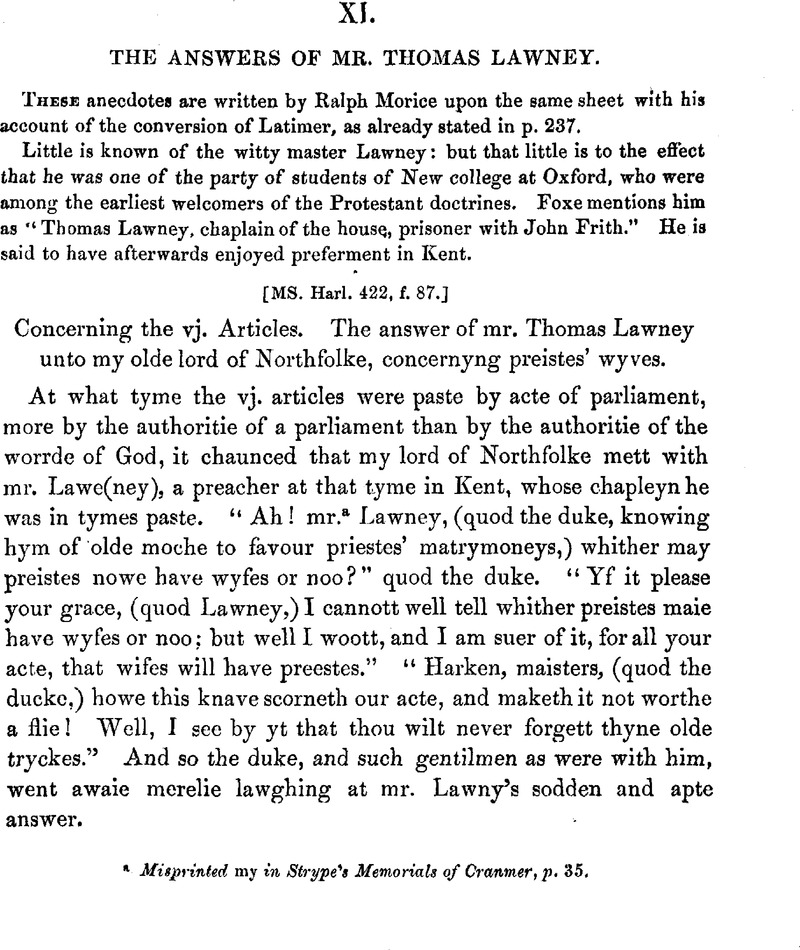No CrossRef data available.
Article contents
XI. The Answers of Mr. Thomas Lawney
Published online by Cambridge University Press: 23 February 2010
Abstract

- Type
- Narratives of the Days of the Reformation
- Information
- Copyright
- Copyright © Royal Historical Society 1859
References
page 276 note a Misprinted my in Strype's Memorials of Cranmer, p. 35.
page 277 note a John Stokisley, bishop of London from 1530 until his death in 1539, a great persecutor of heretics. See memoirs of him in Wood's Athen—Oxon. (edit. Bliss,) ii. 747. There is a speaking portrait of him by Holbein in the possession of Her Majesty at Windsor castle : see Waagen, Treasures of Art in Great Britain, 1854, ii. 431. It has not been engraved.
page 277 note b “Cranmer took an existing translation—Tyndale's, of course, for as yet there was no other.” The Annals of the English Bible, by Christopher Anderson, 1845, i. 453.
page 277 note c i. e. (in modern grammar) corrected.
page 277 note d “ With regard to the portions actually returned to Cranmer, they must have formed a singular medley, and, had they remained in existence, must have forcibly illustrated the character of Cranmer's associates. But not one fragment remains, and it is well. They have been consigned to oblivion, with the vain efforts, in ancient times, of many who had taken in hand that for which they were not competent, and that of which God did not approve. Luke, i. 1.” (Anderson's Annals of the English Bible, i. 454.) Bishop Gardyner, by his own account, on the 10th of June 1535, had finished the translation of Saint Luke and Saint John, “wherein I have spent a great labour.” (Ibid. p. 446.)
page 277 note e Namely, to Morice, the writer of this story.


